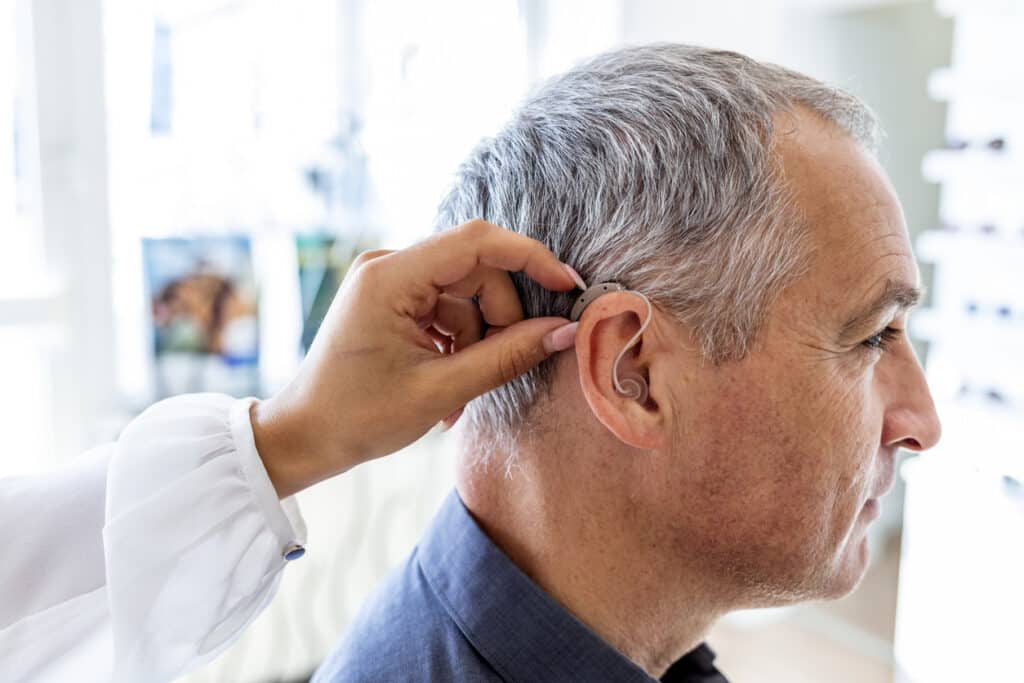Hearing aids are remarkable tools that provide clarity and enable easier communication for people with hearing loss. However, like all technologies, they can sometimes encounter issues. By understanding common hearing aid malfunctions and the appropriate remedies, you can ensure that your hearing aids work to the best of their abilities. Let’s delve into the advantages of using hearing aids, identify some typical malfunctions and learn how to address these issues effectively.
Hearing Aid Benefits

Approximately 28.8 million U.S. adults could experience significant improvements in their daily lives through hearing aids. Three vital ways hearing aids can improve your life include:
- Stronger relationships. Hearing aids play a pivotal role in strengthening personal relationships by reducing the stress of communication.
- Boosting independence. Hearing aids enable you to engage in shopping trips, social gatherings and fun days at Katy Park without the need for assistance. By providing better clarity and background awareness, these devices allow you to grab ahold of your newfound independence confidently.
- Mitigate negative emotions. Hearing loss can cause social isolation, frustration and anxiety. By addressing these challenges, hearing aids can substantially improve your quality of life.
Common Malfunctions and Their Solutions
A few common hearing aid malfunctions include:
- No sound or low volume. If you are experiencing low or absent sound, manually adjust the volume. If that doesn’t work, ensure the battery is installed correctly and charged. Try replacing the batteries if they are correctly installed. After checking the battery, clean your devices to prevent wax blockages.
- Whistling sounds. Whistling sounds, called feedback, occur when sound bounces back into your devices due to earwax or poor positioning. Start by cleaning your devices with a soft towel. Then, reposition them in your ear according to their manual instructions.
- Distorted sound. Distorted sound may arise from low battery, wax or moisture accumulation. Start by cleaning your devices, replacing their batteries and checking for moisture. If there is moisture, dry your devices gently with a cloth and place them in a drying jar or dehumidifier. If distortion continues, contact your hearing specialist.
- Devices shut down unexpectedly. If your devices shut down unexpectedly, change the batteries. If their batteries do not last as long as usual, contact your hearing specialist to check for internal damage.
If these solutions do not fix your device malfunctions, contact your hearing aid specialist for a repair. Remember that you should always schedule regular appointments with your provider for hearing aid maintenance to ensure they continue to address your changing needs.
To learn more about caring for your devices, contact Today’s Hearing today to schedule an appointment with one of our specialists.